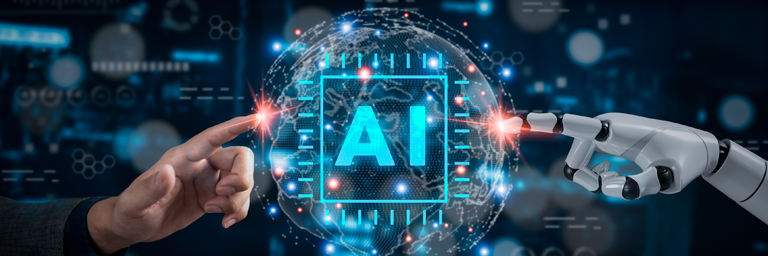In the rapidly evolving landscape of technology, legacy code remains a significant challenge for organizations. Legacy code refers to outdated software systems that, despite being fundamental to business operations, pose challenges due to their obsolescence. These systems are often written in old programming languages, lack proper documentation, and have intricate dependencies, making them difficult to maintain and upgrade. As companies strive to keep pace with innovation, the modernization of legacy code becomes imperative. Artificial Intelligence (AI) agents offer a compelling solution to this problem, providing sophisticated tools and methodologies to facilitate the transition from legacy systems to modern architectures.
Understanding Legacy Code
Legacy code can be characterized by several key features:
- Outdated Technologies: Often written in languages no longer widely used (e.g., COBOL, FORTRAN), making it hard to find developers with relevant expertise.
- Lack of Documentation: Over time, documentation may be lost or never created, complicating maintenance efforts.
- Complex Dependencies: Legacy systems typically have complex interdependencies with other systems, creating a fragile ecosystem.
- Technical Debt: These systems often contain “technical debt,” where quick fixes were implemented over time instead of sustainable solutions.
The modernization of such systems is crucial for improving efficiency, security, and scalability.
Role of AI in Legacy Code Modernization
AI agents bring transformative capabilities to legacy code modernization. These agents leverage machine learning, natural language processing (NLP), and other AI technologies to automate and optimize various aspects of the modernization process.
- Code Analysis and Understanding
AI agents can analyze legacy codebases to understand their structure, dependencies, and functionality. Using NLP techniques, these agents can parse through code comments, documentation (if available), and code itself to generate a comprehensive understanding. Tools like static code analyzers powered by AI can identify patterns, code smells, and potential areas for refactoring.
- Automated Code Refactoring
Refactoring legacy code manually is a daunting task. AI agents can automate refactoring by identifying inefficient or outdated code patterns and suggesting modern equivalents. For example, an AI agent can convert procedural code into object-oriented code, improve variable names, and remove redundant code. Machine learning models trained on large codebases can predict the best refactoring techniques, ensuring that the code adheres to current best practices.
- Language Translation
One of the most significant challenges in legacy code modernization is translating code from old programming languages to modern ones. AI-powered code translators can automate this process. These translators use machine learning models to understand the syntax and semantics of both source and target languages, enabling accurate and efficient code translation. For instance, an AI agent can convert COBOL code to Java or Python, ensuring that the new code retains the same functionality while benefiting from modern language features.
- Code Documentation
Generating documentation for legacy code is often neglected due to the sheer volume of work required. AI agents can automatically generate documentation by analyzing the codebase and extracting relevant information. Using NLP, these agents can create readable and comprehensive documentation, including function descriptions, API references, and usage examples. This documentation not only aids current developers but also serves as a valuable resource for future maintenance and upgrades.
- Testing and Validation
Ensuring that the modernized code functions correctly is critical. AI agents can automate the creation and execution of test cases, comparing the behavior of legacy and modernized code to ensure parity. Machine learning models can predict potential edge cases and generate tests accordingly. Additionally, AI can assist in continuous integration and continuous deployment (CI/CD) pipelines, automatically validating code changes and ensuring that the modernized system remains robust.
Benefits of AI Agents in Legacy Code Modernization
The integration of AI agents into the legacy code modernization process offers numerous benefits:
- Efficiency: AI agents can process large codebases quickly, identifying issues and refactoring code at a pace far beyond human capability. This efficiency reduces the time and cost associated with modernization projects.
- Accuracy: AI agents minimize human error by providing consistent and accurate code analysis, refactoring, and translation. Machine learning models can learn from vast amounts of data, improving their accuracy over time.
- Scalability: AI agents can handle complex and extensive legacy systems, scaling their analysis and refactoring efforts to meet the demands of large organizations. This scalability ensures that even the most challenging modernization projects can be tackled effectively.
- Knowledge Retention: By generating documentation and providing insights into legacy code, AI agents help retain valuable knowledge about the system. This knowledge retention is crucial for ongoing maintenance and future upgrades.
5. Risk Mitigation: AI agents can identify potential risks and vulnerabilities in legacy code, enabling proactive mitigation. This capability is essential for ensuring the security and stability of modernized systems.
Challenges and Considerations
While AI agents offer significant advantages, there are challenges and considerations to keep in mind:
- Complexity of Legacy Systems: Some legacy systems are highly complex, with deeply intertwined dependencies and customizations. AI agents may struggle to fully understand and accurately refactor such systems without human intervention.
- Quality of Training Data: The effectiveness of AI agents depends on the quality and diversity of their training data. Ensuring that these models are trained on comprehensive and representative datasets is crucial for accurate code analysis and translation.
- Human Oversight: Despite their capabilities, AI agents are not infallible. Human oversight is necessary to validate the AI’s output, especially in critical systems where accuracy is paramount.
4. Integration with Existing Workflows: Integrating AI agents into existing development workflows requires careful planning and coordination. Ensuring seamless collaboration between AI agents and human developers is essential for maximizing the benefits of modernization efforts.

